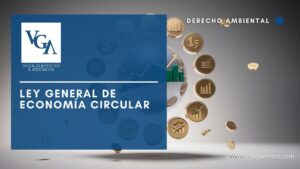Among the multiple advantages that we could name regarding Arbitration as opposed to state jurisdictions, one of the most relevant ones is the ability of Arbitration to adopt solutions to current problems more quickly and effectively. As it is a more dynamic resolution method, it has the facility of not being subject to the same formalities as national laws for its reform or modification.
We have seen this in recent years where Arbitration Institutions have made modifications to their arbitration rules to reflect the current situation of the world, thus modifications have been made to provide for the new technological solutions that have been adopted in Arbitration and mechanisms have also been adopted to guarantee the impartiality and independence of the arbitrators who participate in the process.
However, some of the more arbitration-friendly jurisdictions have also added provisions on gender equality and diversity, and also measures to ensure the environmental sustainability of the proceedings. The twenty-fifth Congress of the International Council for Commercial Arbitration (ICCA) was recently held in Edinburgh, Scotland, and the Scottish Arbitration Center presented its new arbitration rules.
In this new regulation, the Center adopts some of the provisions that we mentioned before, which have been adopted in recent years by several Administering Institutions but also adopts provisions that account for the concerns that have occupied the contemporary era.
Some of them are those adopted in matters of Equality, Diversity, and Neutrality, establishing that the parties involved in the Arbitration will take into consideration the Commitment to equal representation in Arbitration (Equal Representation in Arbitration Pledge), also recognizes the importance of Racial Equality for Arbitration Lawyers (Racial Equality for Arbitration Lawyers)
The Equal Representation in Arbitration Pledge (ERA Pledge) is an initiative to promote gender equality in arbitration. Seeks to increase the number of women appointed to international arbitration tribunals on an equal opportunity basis. It aims to ensure that women are fairly represented on lists of potential arbitrators (so that they can be selected where appropriate) and that experienced arbitration professionals encourage women to practice in this field.
The Racial Equality Initiative for Lawyers in Arbitration (REAL) is an organization that promotes racial equality, diversity, and inclusion. It seeks to address discrimination and bias in international arbitration and increase the representation of groups underrepresented.
Thus, the arbitration rules of the Scottish Center establish that the parties may not agree in advance on the gender, race, or ethnicity of any arbitrator to be appointed in the process, it is also provided that the Center will take into account the nationalities of the parties when making appointment of arbitrators.
In terms of sustainability, the rules also contain provisions requesting the parties involved in the arbitration process to be aware of the environmental impact of arbitration and to prioritize the use of videoconferences and other technological solutions that reduce the impact on the environment as far as possible.
This regulation represents a great advance in the recognition and implementation of these initiatives because although arbitration in a general way has always sought the application of diversity initiatives and inclusion, its formal inclusion in the rules of an arbitration institution is an indicator of the progress that these issues have in the arbitration community and its importance to guarantee effective arbitration processes.
The arbitration community must encourage innovation, address issues of unconscious bias and acknowledge different cultural perspectives to improve the quality of arbitration awards.




